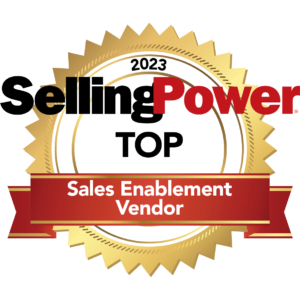How CEOs Can Improve Sales Through Enterprise Engagement

Unless you’ve ever been in the business of convincing people to spend money with you, you cannot empathize with the psychological beating many (if not most) salespeople take – no matter how successful they become.
What makes the job so tough? In many cases, 90 percent of all sales calls go unreturned, another 90 percent of completed calls lead nowhere, and, in many businesses – of the calls that lead to next steps – probably only about 10 percent of those end up becoming customers.
If this stunning, but average, rate of indifference or rejection were not bad enough, ask most sales management and they will say they often do not feel the needs of the sales force are understood by CEOs or marketing management.
The brutal reality and challenges of the sales department can be turned into a positive force by having a CEO-led, strategic, and tactical approach to sales management that:
- Links sales to the entire organization’s brand, culture, and objectives, so the people we equip to face continual rejection have the support of everyone on the team.
- Develops a sales force that is, to the extent possible, recruited with the right attitude and skills or receptivity for the brand and culture of the organization and industry.
- Ensures the sales force is as well-equipped as possible – with all the relevant leadership, coaching, organizational information, skills, empowerment, product and service knowledge, etc., to identify prospects whose needs match the organization’s solutions – and can guide customers (often involving teams of influencers) through the discovery process to find win-win solutions.
When all the organization’s priorities support the team that must convince people to pay for its products or services, the reward is significantly higher sales – because satisfied customers beget more business and more referrals.
The key to the entire process of enterprise engagement is to have a clear, written plan – ideally tied to the organization’s overall goals and updated whenever those goals change.
Nine Quick Tips for Successful Enterprise Sales Engagement
Below is a step-by-step guide to implementing an approach to enterprise sales engagement that aligns with the principles of enterprise engagement and ISO Annex SL and ISO 10018 quality people management standards that provide a framework for the strategic management of all stakeholders in a way that connects the dots between all actions that can drive success.
- Understand the unique characteristics of salespeople’s role and working conditions.
- Employ a systematic, enterprise approach.
- Commit to a clear brand definition unifying the interests of all stakeholders.
- Use assessments as information to better prepare salespeople for the conditions they will face.
- Make sure trust and communication exists between reps and customers.
- Develop a strategic learning plan whose greatest impact occurs over time as the information becomes steeped into the sales culture.
- Build a specific plan to foster community in the sales team.
- Design incentive programs to align with and support overall enterprise sales engagement strategies.
- Create analytics that identify the specific types of actions, information, lead sources, etc., that foster the best results.
Organizations will achieve the best results from sales management if they 1) employ a strategic, CEO-led effort that connects the brand and its promises to everyone in the organization, and 2) when the sales team feels part of a strategic and systematic process that regularly incorporates their own feedback as well as market feedback to ensure the process dynamically adapts to changing market conditions.
Want to learn more about enterprise sales engagement? Meet solution providers and get more insight at the Sales 3.0 Conference in San Francisco.
Based on material from Bruce Bolger, founder of the Enterprise Engagement Alliance.
Get our eNewsletter
Get the latest sales leadership insight, strategies, and best practices delivered weekly to your inbox.
Sign up NOW →